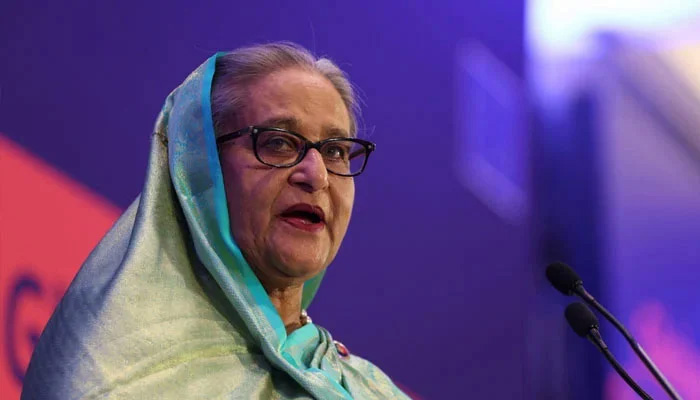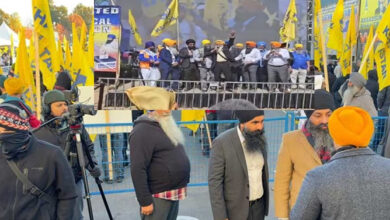Sheikh Hasina Resigns and Flees to India: A Close Look at the Recent Crisis in Bangladesh

Dhaka:After weeks of anti-government protests and the killing of hundreds of demonstrators, Sheikh Hasina’s 16-year tenure as Prime Minister of Bangladesh came to an end yesterday. Following her resignation, she fled to India.
In a national address, Bangladesh’s Chief of Army Staff, General Waqar-ul-Zaman, announced that peace would be restored in the country and that talks are underway to establish an interim government.
According to ANI, Sheikh Hasina arrived at Hindon Air Base in Ghaziabad, Uttar Pradesh, via a C-130 transport aircraft. During her arrival, the Indian Air Force and security agencies closely monitored the aircraft’s movements.
**Reports of Hasina’s Safe Haven in India**
Subsequent reports from Bangladeshi media suggest that Sheikh Hasina has been provided with a secure, undisclosed location in India prior to her transfer to the UK. It is expected that she will remain in India until she secures political asylum in the UK.
**Why India?**
Hasina’s choice to seek refuge in India is significant due to India’s longstanding support for her. Throughout her tenure, Hasina worked to enhance bilateral relations between Bangladesh and India. She played a crucial role in addressing security concerns in India’s northeastern states, which have faced insurgencies for decades. Furthermore, she conducted crackdowns on anti-India insurgents within Bangladesh to garner support from New Delhi.
Under Hasina’s leadership, Bangladesh and India maintained strong ties despite criticisms from opposition forces in Dhaka. India has also been Bangladesh’s largest trading partner in South Asia, and both countries have emerged as rapidly growing economies in Asia.
**End of Hasina’s 16-Year Rule**
The end of Sheikh Hasina’s rule follows a month of violent protests and numerous fatalities. The Bangladeshi military had reportedly given Hasina a 45-minute deadline to resign, leading to her sudden departure.
The crisis highlights the deep-rooted political and social tensions in Bangladesh and the complex dynamics of regional politics in South Asia.





